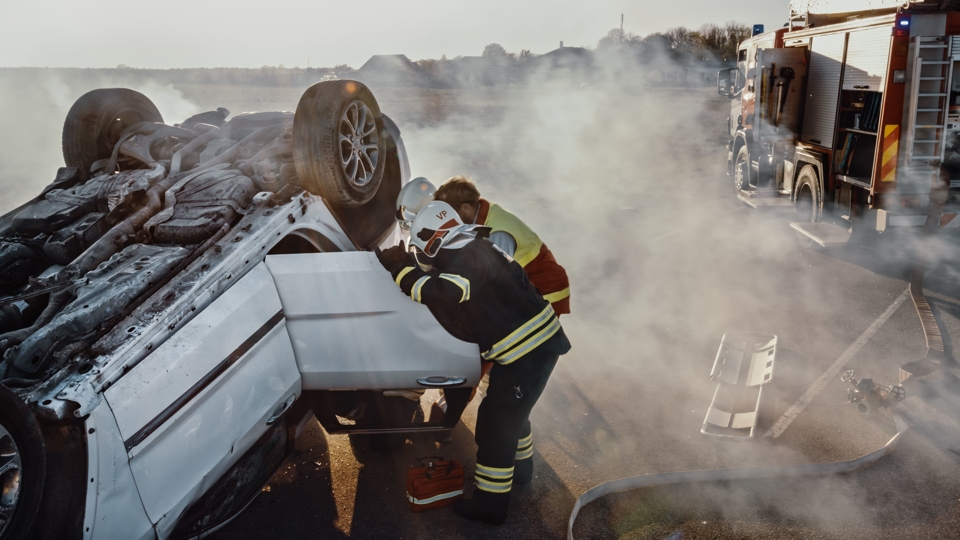Loss of a Loved One
Losing a loved one is never easy, and when you suspect that the death was wrongfully caused, it can be incredibly overwhelming. It's natural to feel lost in such a situation, but knowing what wrongful death cases are and how they work can help bring closure. That's why we've created this blog–to break down all the legal details so that you know exactly what to expect should you decide to pursue a wrongful death case.
Definition of a Wrongful Death Case
A wrongful death is a legal term used to describe a situation where an individual dies due to another person's reckless or negligent actions. In a wrongful death case, the responsible party is liable for their actions and can be sued in court. The survivors of the deceased typically bring forth a civil lawsuit against the responsible party and may be entitled to compensation for things such as medical expenses associated with their loved one's death, loss of economic support, pain/suffering, punitive damages, etc. Although no compensation can replace the life lost in these unfortunate circumstances, a wrongful death lawsuit can provide justice for the deceased and their family members.
Types of Wrongful Death Cases
Wrongful death cases are civil claims brought against parties alleged to have caused a person's death due to either negligence or intentional wrongdoing. While there is much overlap between different types of wrongful death cases, most fall under two categories: wrongful acts and omissions. In some wrongful acts cases, a particular action or actions that directly led to the individual's death can be identified. In contrast, in other cases, the defendant failed to act when they had an obligation. Regardless of the type of case, the purpose of a wrongful death suit is to seek justice and financial compensation for the surviving family members.
Causes of Wrongful Death
When someone dies due to the negligence or fault of another person, it is known as wrongful death. The term "wrongful death" can be applied to various situations and may occur in any number of settings, including medical malpractice, automobile accidents, workplace-related incidents, intentional/unintentional criminal acts, and product liability cases. In most cases, wrongful death is caused by someone's carelessness, ignorance, recklessness, or neglect. Common reasons for wrongful death may include the following:
- Failure to treat a patient or diagnose a medical condition properly
- Providing inadequate security that results in harm
- Manufacturing a defective product
- Operating motor vehicles at unsafe speeds
- Not observing appropriate safety standards in the workplace
- Supplying drugs without cautioning patients about possible side effects
- Misuse of power or authority.
Elements to Prove in a Wrongful Death Case
A wrongful death case should be taken seriously and require careful consideration. In determining liability in a wrongful death case, all the elements necessary to prove negligence must be present. These elements include verifying that the person or entity at fault caused the decedent's death due to an action or lack thereof. Additionally, establishing whether there was a duty of care owed by the defendant, whether this duty was breached, and if such breach led to the injury resulting in death must also be proved. Finally, damages arising from the death of the decedent must be established before compensation can be awarded against the liable party. With so many delicate considerations pertinent to filing a successful wrongful death claim, ensuring you have access to qualified legal representation is essential.
Precedence for a Wrongful Death Case
Precedence for a wrongful death case is based on the various legal statutes that have been established throughout the United States. Typically, these cases involve fatalities due to negligence or intentional harm and survival actions seeking damages for pre-death pain and suffering. To pursue a wrongful death claim, a representative of the decedent's estate must bring forth evidence that any losses sustained by the family were a direct result of an unjust act. It is important to note that they must provide proof of both legal liabilities on behalf of the defendant and economic loss suffered by the remaining family members for a court to accept their case.
Who Can File a Wrongful Death Claim
Understanding who can file a wrongful death claim is crucial for families and loved ones of deceased individuals. In general, close family members such as spouses, children, siblings, parents, or legal representatives of an estate can submit this type of case against a wrongdoer. Typically, the claimant has to show that their relative died because someone else was negligent or deliberately caused harm; this is why proof that wrongful death occurred in the first place is essential for any case. Additionally, pursuing legal action is usually recommended soon after a relative dies and the family becomes aware of a potential wrongful death scenario.
Get Help From Wrongful Death Attorneys
Wrongful death cases are sensitive, but a specialized lawyer can help you. Knowing these details is essential when selecting an attorney and building the proper case for your circumstances. If you believe someone you love was wrongfully taken away through the fault of another entity or person, don't hesitate to get professional assistance.
Contact Henry, Williams & Kinder, P.C. at (800) 526-1949 for help with a wrongful death today and bring closure to this devastating experience.




.2408271523186.jpg)
